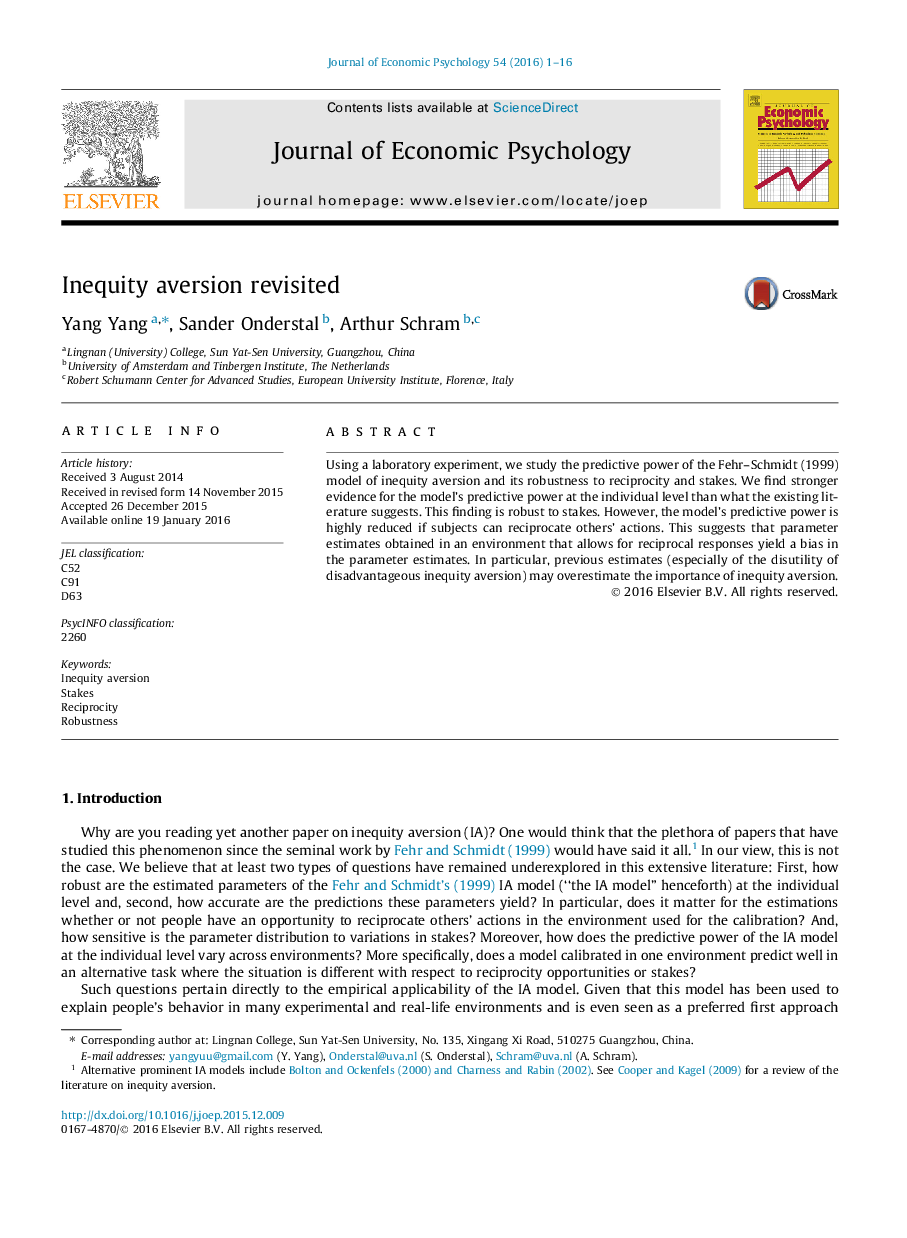| Article ID | Journal | Published Year | Pages | File Type |
|---|---|---|---|---|
| 7244317 | Journal of Economic Psychology | 2016 | 16 Pages |
Abstract
Using a laboratory experiment, we study the predictive power of the Fehr-Schmidt (1999) model of inequity aversion and its robustness to reciprocity and stakes. We find stronger evidence for the model's predictive power at the individual level than what the existing literature suggests. This finding is robust to stakes. However, the model's predictive power is highly reduced if subjects can reciprocate others' actions. This suggests that parameter estimates obtained in an environment that allows for reciprocal responses yield a bias in the parameter estimates. In particular, previous estimates (especially of the disutility of disadvantageous inequity aversion) may overestimate the importance of inequity aversion.
Related Topics
Social Sciences and Humanities
Business, Management and Accounting
Marketing
Authors
Yang Yang, Sander Onderstal, Arthur Schram,
